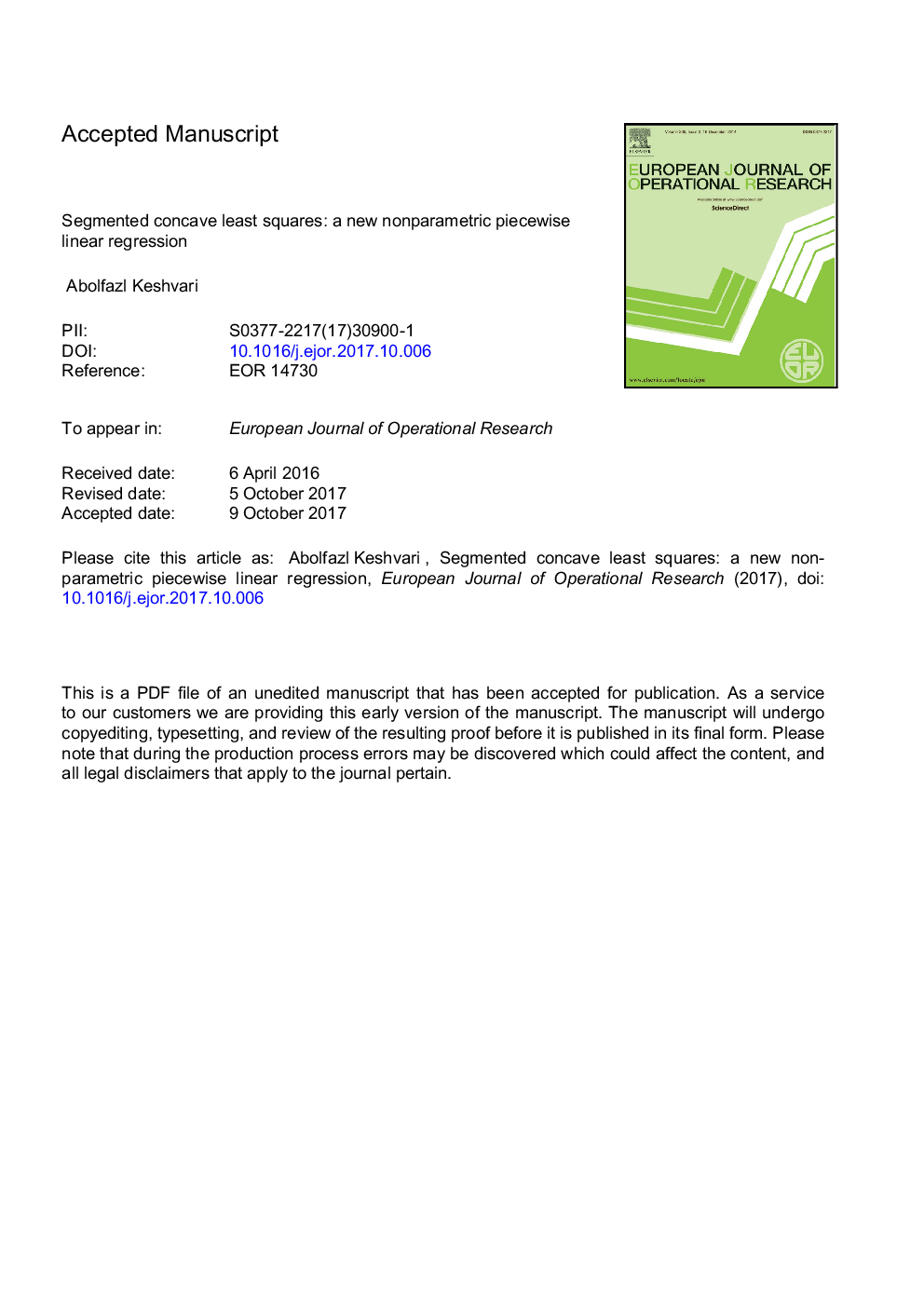| Article ID | Journal | Published Year | Pages | File Type |
|---|---|---|---|---|
| 6895172 | European Journal of Operational Research | 2018 | 22 Pages |
Abstract
In this paper, segmented concave least squares (SCLS) is introduced. SCLS is a nonparametric piecewise linear regression problem in which the estimated function is (monotonic) concave and the number of linear segments (k) is pre-specified. Ordinary least squares (kâ¯=â¯1) and concave least squares (kâ¯=â¯n, the number of observations) are two extreme cases of this problem. An application of SCLS is to estimate a hedonic function. Using this method, observations are categorized into k groups and a piecewise linear hedonic function is estimated such that there is one linear segment for every group. The estimated hedonic function holds the principle of diminishing marginal utility. In this paper, SCLS is used to categorize hotels in Finland into three groups. A trade-off between the number of groups and the goodness of fit measure is used to determine the number of groups. Based on the similarities of the pricing methods, hotels in the sample are endogenously classified and the shadow prices for each group are calculated. The results reveal that the hotels do not value hotel attributes similarly and there are significant differences among groups. Hedonic pricing model via SCLS provides a novel categorization of hotels that cannot be obtained by using ordinary least squares.
Related Topics
Physical Sciences and Engineering
Computer Science
Computer Science (General)
Authors
Abolfazl Keshvari,
